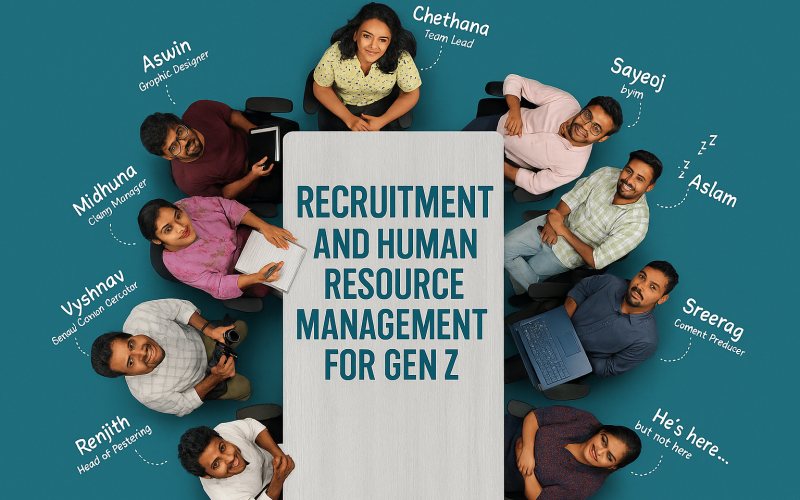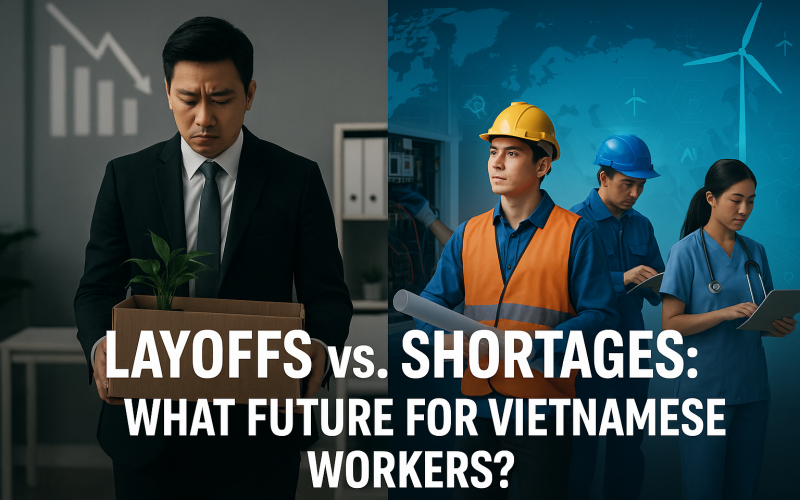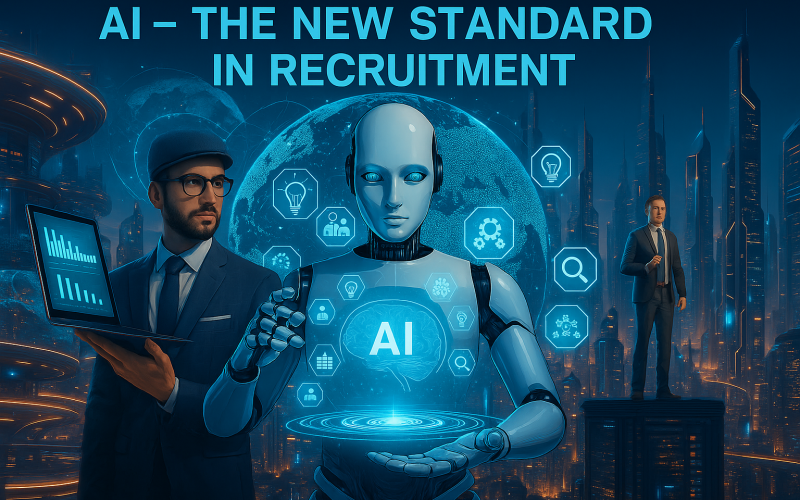Employer Branding – The Secret Weapon Helping Vietnamese Companies Attract Top Talent
In today’s fiercely competitive Vietnamese labor market, having a well-planned employer branding strategy is no longer optional - it’s essential for survival. “Employer Branding,” once considered a specialty of multinational corporations, is now proving its practical value right here in Vietnam.
What Is Employer Branding?
“Employer Branding” is how a company builds and communicates its image as an ideal workplace in the eyes of candidates and employees.
It’s not just about glamorous social media posts or fancy recruitment videos - it’s the sum of corporate culture, benefits, work environment, and how an organization treats its people.
According to a LinkedIn survey, up to 75% of job seekers research a company’s employer brand before applying. This shows that in the age of information transparency, an employer’s image directly impacts its ability to attract talent.
The HR Battlefield: When Employers Must Be More Proactive Than Ever
It’s easy to see that today’s workforce - especially younger generations like Gen Z and Millennials - has become increasingly selective. Beyond salary, they care deeply about personal values, cultural fit, and long-term growth opportunities.
This shift forces companies, particularly Vietnamese businesses, to change their mindset: it’s no longer “candidates need jobs,” but “companies need the right people.”
In this fierce competition, Employer Branding becomes a “soft weapon” - yet one that’s incredibly sharp.
Employer Branding: The Key to Elevating Vietnamese Businesses
1. Strengthening employee engagement and retention
A strong employer brand not only attracts new hires but also helps retain existing employees. Workers feel more proud, motivated, and loyal when their workplace is respected and recognized for its values.
2. Increasing competitiveness in the talent market
While some companies struggle to recruit, those with well-established employer branding strategies can easily attract high-quality candidates without excessive advertising costs.
3. Saving costs and improving efficiency
A well-defined employer brand shortens hiring time, reduces turnover, and increases long-term engagement -ultimately improving the company’s financial performance.
Lessons from the Field: Vietnamese Companies Leading the Way
Tiki – “Work Like You Play”
Tiki is a prime example of putting people and culture at the center of its employer branding. Through dynamic internal programs and creative communication campaigns, Tiki has not only retained top talent but also built strong trust among external candidates.
FPT – The “Digital Citizen” Model
As one of Vietnam’s technology pioneers, FPT stands out in modern employer branding. Its emphasis on creativity, innovation, and an energetic work culture has made FPT a top destination for young professionals.
How to Start Building an Employer Brand
Here are a few suggestions for Vietnamese companies—of any size—to begin their employer branding journey:
1. Understand your true identity
Ask: “What makes us unique?” It could be your culture, flexibility, learning opportunities, or inspiring leadership.
2. Align internal and external communication
Consistency is key. What you promote externally must accurately reflect the internal reality - because today’s candidates can easily tell authenticity from fluff.
3. Leverage your employees’ voices
Employees are your most authentic brand ambassadors. Encourage them to share their work experiences and spread positive stories about the company.
4. Measure and improve continuously
Like any other business strategy, employer branding must be regularly evaluated. Metrics such as employee satisfaction, turnover rate, and communication reach provide valuable insights for improvement.
Beware of the “Gray Zones” in Employer Branding
Many companies fall into these common traps:
- Focusing too much on a glamorous image while neglecting core values.
- Copying competitors’ models without developing their own identity.
- Excluding employees from the employer branding process.
Recognizing and avoiding these pitfalls is essential to ensure your branding efforts remain authentic- not just another marketing gimmick.
Investing in Employer Branding Is Investing in the Future
In today’s digital and globalized era - where people are the most valuable asset - building and developing an employer brand is not a short-term campaign but a long-term strategic commitment.
Vietnamese companies that authentically and consistently embrace employer branding will not only attract top talent but also ignite internal passion and create sustainable competitive advantages.













